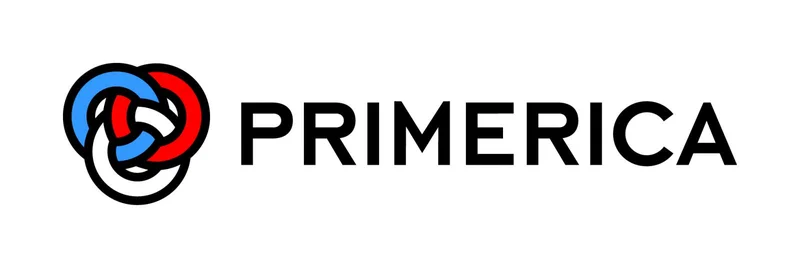Binance Pulse | BNB Price Trends
Binance Pulse | BNB Price Trends
We Just Invented a Cognitive Telescope, and It's Pointed at the Universe's Biggest Mysteries
================================================================================================
I saw a private demo last week that left me breathless. Literally. For a full minute after the lead researcher finished speaking, I just sat there in my chair, staring at the screen, completely silent. It wasn’t a flashy demo—no holograms, no robotic arms. It was just lines of data scrolling, connecting concepts from materials science, organic chemistry, and quantum physics in ways no human has ever conceived. What I was looking at wasn't just another AI. This is the kind of breakthrough that reminds me why I got into this field in the first place.
We’re all getting used to AI that can write a poem or generate a picture of an astronaut riding a horse. That’s incredible, don’t get me wrong. But it’s fundamentally a reflection of us—our art, our language, our history. The system I saw, a research project codenamed "Aether," does something profoundly different. It isn’t designed to imitate human creativity; it’s designed to augment human discovery.
Think of it like this: for centuries, we explored the universe with our naked eyes. Then, Galileo pointed a telescope at the sky and revealed a cosmos we never knew existed. The telescope didn't replace the astronomer; it gave the astronomer a new universe to explore. Aether is that, but for the inner universe of scientific knowledge. It's a cognitive telescope, a tool that allows us to see the invisible connections between disparate fields of science. And what it's showing us is going to change everything.
For most of history, science has been a story of painstaking, incremental progress. A biologist spends a decade testing thousands of compounds to find one that affects a specific protein. A materials scientist spends a career mixing and melting alloys, hoping for a breakthrough in tensile strength. It’s heroic, vital work, but it’s fundamentally limited by the speed of human thought and the slow, grinding pace of physical experimentation. We've been searching for needles in infinite haystacks.

Aether doesn't just search the haystack faster. It sees the whole stack at once and intuits where the needle must be. It uses a multi-modal transformer architecture—in simpler terms, it can read a thousand chemistry papers, cross-reference them with a database of protein structures, and then "see" a novel molecular shape that could become a new drug, all in the time it takes to brew a pot of coffee. The speed of this is just staggering—it means the gap between a wild hypothesis and a testable theory is closing faster than we can even comprehend, potentially collapsing decades of research into days.
I watched it propose a novel catalyst for carbon capture that no chemist had ever considered, because it borrowed a structural concept from crystallography that simply wasn't on anyone's radar. It’s not just accelerating our current path; it’s carving new highways through previously impassable terrain. This isn't about replacing the scientist. It's about freeing them from the drudgery of brute-force discovery and elevating them to a new role entirely.
And that, right there, is the big idea that so many people are going to miss. The advent of tools like Aether doesn't make human scientists obsolete. It forces them—it forces us—to evolve. Our primary role is shifting from being the ones who find the answers to being the ones who ask the most beautiful questions.
Imagine you're a young astrophysicist. Instead of spending your career crunching data to prove one narrow hypothesis, you can now ask Aether: "Are there any correlations between dark matter distribution and the formation of complex organic molecules in nebulae?" It's a question so vast, so interdisciplinary, that it would have been un-testable, a piece of science fiction. Now, it's a query you can run in an afternoon. What happens to science when the only bottleneck is the quality of our curiosity? What new fields of study will be born when a single researcher can stand on the shoulders of an intelligence that has read every paper ever published?
I saw a comment on a forum the other day that perfectly captured this feeling. Someone wrote, "It feels like we just handed a compass to every explorer on Earth, all at once." That’s it. That’s the feeling. It’s the same paradigm shift that happened with the printing press, which didn't just make more books, but created a world where mass literacy and the Enlightenment itself became possible.
Of course, a tool this powerful comes with immense responsibility. We have to steer it with wisdom. Its insights must be guided by human ethics and a deep understanding of the potential consequences. This isn't a magic oracle that will solve all our problems; it’s an amplifier. It will amplify our greatest strengths—our creativity, our empathy, our quest for knowledge—but it could also amplify our biases if we aren't careful. The challenge isn't just a technical one; it's a deeply human one.
Let's be clear. This isn't the end of human ingenuity. It's the beginning of its most exciting chapter. We are on the cusp of a new era where the partnership between human curiosity and artificial intelligence unlocks a level of discovery we can barely imagine today. Cures for diseases, solutions for climate change, new physics that could take us to the stars—the possibilities aren't just on the horizon; they're right in front of us. We just have to be brave enough to ask the right questions.